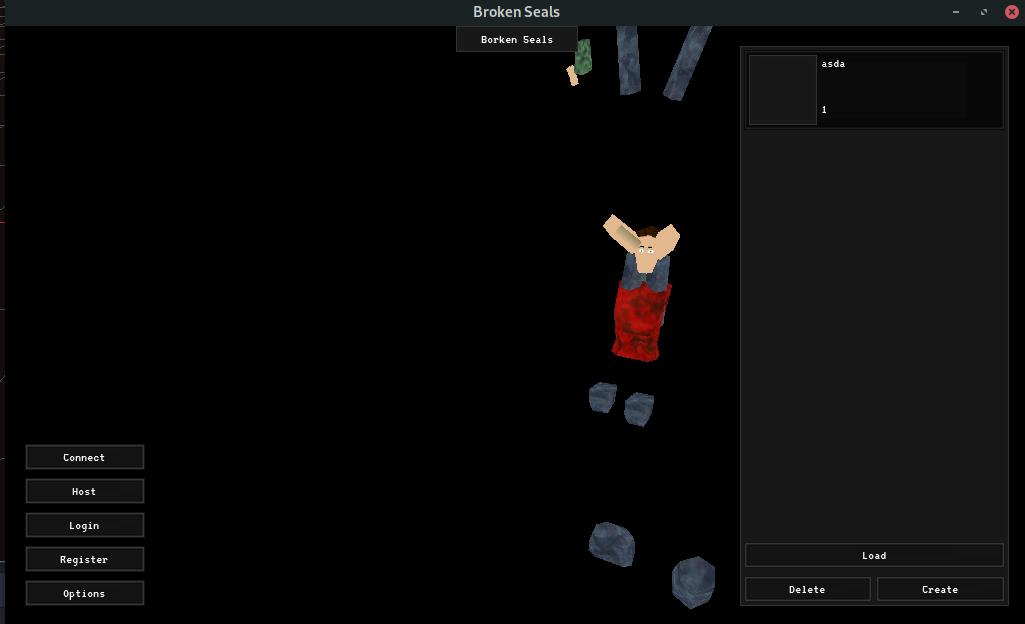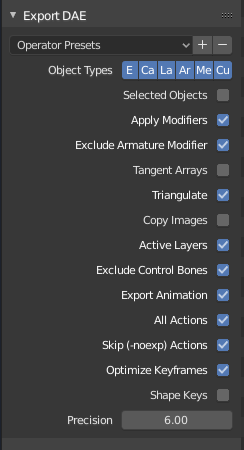| game | ||
| patches | ||
| pictures | ||
| tools/vscode-setup | ||
| .gitignore | ||
| build_ios_release.sh | ||
| build_ios.sh | ||
| build_osx.sh | ||
| build_uwp.bat | ||
| editor.bat | ||
| editor.sh | ||
| HEADS | ||
| LICENSE | ||
| Makefile | ||
| README.md | ||
| SConstruct | ||
Broken Seals
The project requires a few custom engine modules to run! read the Editing the game part!
Keep in mind, that most of the work went into the engine modules so far, and the style itself.
A 3D third person RPG. With both multiplayer, and singleplayer capabilities.
The main gameplay-loop goal is to create an experience with enough complexity and depth, that can rival the more old-school MMO- and action rpgs, because nowadays I feel like that is something that got lost.
I want the game to run on every platform, without sacrificing from the gameplay. From the testing I've done this is not even an issue.
This game (with the engine modules) was ported from unity, because it kind of hit the limits of that engine. (Not rendering-wise)
- Basically imagine having about 20 assembly definitions, a main assembly definition, which are just a bunch of interfaces, and everything
- dependency-injecting itself into it, and still having a 30-ish second compile time, while constantly running into unfixable bugs, and
- having to work around "simple" problems, like implementing a networking solution on top of LLAPI. Alone.
And the reason for me to tell you is:
-Implementing spells did not get too much priority in this version, meaning like half of them doesn't work at all. -In the other version I tried to have bindings for controllers, so that they can use lots of spells, it works, and it's not bad at all, but it's not yet implemented into this one. (It was pretty much implemented as bindable control keys) -Sounds were not implemented at all yet. -With the graphics I only worked to get the style itself right.
Except for these features however, this version is way more advanced, than the unity one! c++, and godot conventions allowed me to change the code design into something that is pretty much on an another level feature-potential wise.
So it will not take long to implement most if the missing features themselves, as the basic scaffolding is there already.
Now all of these will get higher priority.
Screenshots
Currently the game looks like this:
Editing the game
In order for you to open the game in the editor you will need a custom built version, which can be downloaded from the releases tab, or if you want to build it, chech the Compiling section.
Once you have the proper editor, you should also grab the addons.
You will need scons installed. Scons is required to build godot aswell, so the official godot docs already contain information on how to set it up here.
in the project's folder call:
scons t=all_addons
Note that if you built the editor yourself (a.k.a you already ran the command scons), you will already have these, and you can skip this step.
Project architecture
This is the main game, it has scripts so compiling, and setting up the engine is really easy.
To be able to open this project you will need a few engine modules compiled into godot, (The setup script will grab these) namely:
https://github.com/Relintai/world_generator.git
https://github.com/Relintai/entity_spell_system.git
https://github.com/Relintai/ui_extensions.git
https://github.com/Relintai/voxelman.git
https://github.com/Relintai/texture_packer.git
https://github.com/Relintai/godot_fastnoise.git
These modules should be more like core modules. Game specific c++ features will go to a different module. I'll set it up soon.
Compiling
Before compiling, in the project's folder just run scons, it will set every dependency up. Like:
scons
I still have the old setup scripts in the repository, in case the scons command fails:
EngineSetup.bat on windows, or engine_setup.sh on linux/osx.
And then just compile godot as usual. Note I have a bunch of scripts to do it in the root of the project, you can just select the one you need.
Official docs for compiling GODOT
Pulling upstream changes
After you pull changes, just run scons, it will update the dependencies.
Editing/Exporting the model
To edit the model you will need blender, and the better collada exporter plugin for it.
If you edit the model (the armature), and want to export it, you will need to do it with these settings:
I recommend, that before exporting, you set the action back to the rest action, like
this will usually eliminate the import issue below.
Sometimes when the model gets imported into godot it will look like this:
 (I'll add an in-editor screenshot aswell when it happens again)
(I'll add an in-editor screenshot aswell when it happens again)
Usually the simplest fix is to just export again (since blender is probably still open). I was also able to fix it by changins some settings and clicking reimport a few times in the inspector. But exportin again is usually the fastest.
I haven't been able to figure out what causes this yet.


